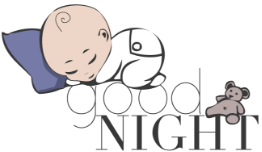When a baby is not sleeping it is difficult for parents to figure out the root cause. Much sleep advice received from parents or maternal grandparents involves advice about nutrition as it is a long-
standing sleep myth that a baby usually wakes up because of hunger. Pediatric nutrition is a controversial subject, and even when to start solids or when to introduce protein into a baby’s diet is debated within the baby sleep sphere. But are there certain foods that can help a baby sleep better? Should breastfeeding influence the types of food that you give? And does infant nutrition really influence sleep?
Will putting cereal in my baby’s bottle help him sleep better?
Remember that sleep is influenced by the brain and not by the stomach. Although a hungry child will not sleep well, in most cases interrupted sleep is not because of malnutrition. Furthermore, introducing solids to an immature gut could increase a baby’s risk of developing chronic diseases such as diabetes, coeliac disease and possibly obesity.
Will my baby start sleeping better when he starts solids?
Yes and no. In our experience as sleep consultants, we don’t often find that introducing solids is the one thing that a baby is lacking for better and good quality conducive sleep. It’s more likely a combination of factors and sleep hygiene should be a priority both prior and after the introduction of solids. In fact, the introduction of solids (which ideally should happen between 4 and 6 months, depending on when your baby is ready) could cause initial digestive discomfort as the bowel needs to adjust and this is the main reason for sleep regression when a baby is young. If a baby suddenly starts solids or is introduced to iron-rich food for the first time or anything that might cause the digestive system to adapt, this may cause the baby to be uncomfortable and hence he/she would wake up more often, rather than less.
Should I start giving my child a bottle to help him/her sleep better?
It is becoming more evident that adequate nutrition is good for a baby’s sleep. A hungry baby will not sleep well. That being said, parents often make the mistake of introducing a bottle purely because it will keep a baby fuller for longer and they think it means more rest at night. Very often poor sleep in infants is associated with breastfeeding problems that can be assisted by a lactation consultant or expert. Parents should be advised prior to any sleep interventions, to make sure that they assess any and all possible feeding problems. Formula feeding should not be introduced just because a parent believes that it would make the infant sleep better, as this is, in fact, a myth. Breastfed babies can also sleep well if one takes a holistic approach to sleep and makes sure the child receives adequate calorie intake during a 24 hour period. Parents should also be encouraged to wake very sleepy newborns after a three hour period during the day to drink and to encourage full feeds when nursing.
If my child is already two years old, could nutrition be the reason for his sleepless nights?
Seep can be influenced by an array of things – from nutrition to medical issues but very often at this age, sleep is a discipline or behavioral problem. Once you have successfully ruled out medical problems, consider your child’s nutrition habits. Essentially, your child should not have stimulants like sugar and caffeine and should eat balanced meals that include protein three hourly during each day. Hydration is especially important in the summer months, so remember to give your child adequate amounts of water too. At the age of two, milk becomes supplementary and should not form a fundamental part of the child’s nutritional needs. Also, your child should no longer be taking milk feeds during the night. I highly recommend that if your two-year-old is still using a bottle, the change to a sippy cup must be made, and it should not be taken to bed.
Nutrition and sleep can never be separated
You can never separate sleep and nutrition. To initiate a restful sleep, we need to encourage that our children eat foods that are sleep-inducing neurotransmitters such as serotonin and melatonin. Traditionally, these are foods rich in Tryptophan and B complex vitamins. Growth hormones are also released when we sleep and these are essential for not only growth but also healing and repair. Protein for dinner is an excellent choice, as well as keeping your toddler’s sugar levels stable. Omega 3, Iron, Zinc and Magnesium are crucial for good quality sleep.
Sleep is vital for all humans to be healthy: it’s when we recharge so we’re at our personal best. Bad sleeping habits are linked to obesity, poor performance, ADHD, car accidents… you name it! If your child isn’t sleeping well, you’re likely not to sleep well either and this could be detrimental to your health as well as your child’s! However, if addressed early on, sleep problems can be overcome. The bad news is bad sleepers do not just “grow out of it”. But the good news is there is a great deal you can do about it!
#sleeptraining



